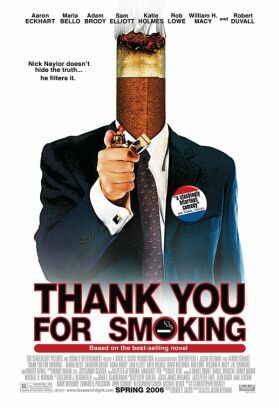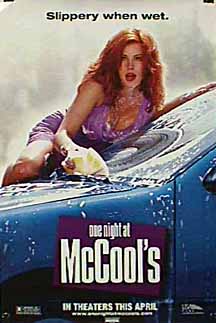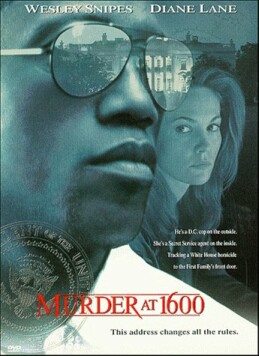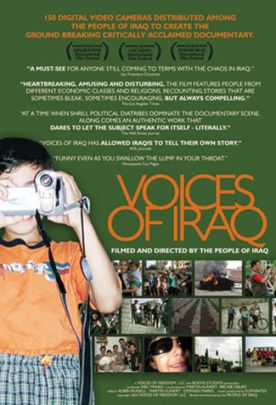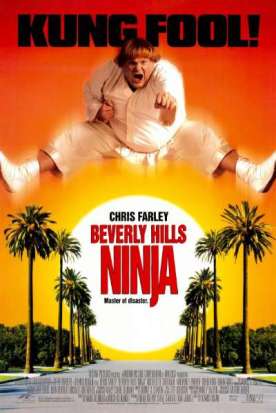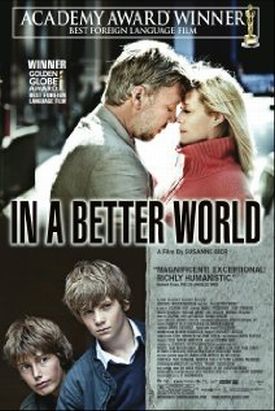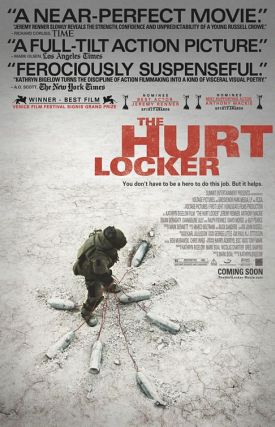Thank You for Smoking
Jason Reitman’s film version of Christopher Buckley’s novel, Thank You for Smoking, gets you hooked and leaves you wanting more, just like the cigarettes that are the occasion of so much of its infectious humor. Also like cigarettes, it’s probably bad for you. What’s missing is any sense of moral indignation — not towards cigarettes or tobacco companies, about whom moral indignation is cheap and lacking in satirical kick, but towards the “spin” industry that is the film’s real subject.
Nick Naylor (Aaron Eckhart) is a crack public relations spokesman for the tobacco industry in Washington who travels all over the country to debate the Puritans and health nuts and even cancer victims who want to punish Big Tobacco for undermining the nation’s health. Periodically he meets with his fellow “Merchants of Death” Polly Bailey (Maria Bello) and Bobby Jay Bliss (David Koechner) — spokesmen for producers of alcoholic beverages and gun manufacturers respectively — to indulge in a bit of swagger about whose product kills more people and who, therefore, has the more challenging job. These people, we are meant to understand, are the élite of the PR trade.
Now you may have noticed a certain implausibility about all this. In real life, none of these industries has adopted such an aggressive stance in putting its case before the public. Tobacco, especially, doesn’t seem to bother defending itself at all anymore. In the wake of the multi-billion dollar settlement with the state attorneys-general in the 1990s, Big Tobacco has pretty much rolled over and played dead, concentrating on its export markets while quietly continuing to feed the habits of the millions of pathetic addicts left out in the cold to suck their smoke in bedraggled little groups by the onward march of manners, morals and public hygiene.
The film tries to get around this by setting Nick’s adventures back in the early 1990s, when Mr. Buckley’s book came out, but it can’t quite avoid conveying to the audience the sense of being out of date. When Nick is kidnapped by anti-smoking fanatics and stuck all over with nicotine patches, our first reaction is likely to be: “Remember when that’s what we thought of as terrorism?” I find this particularly regrettable because I consider myself to be one of the few remaining adherents of what we must now regard as the lost cause that Nick represents — or ought to have represented. It is the failed crusade against the therapeutic ethos in law and public policy. In other words, I believe that people should be treated as morally autonomous and therefore responsible themselves for what they eat, drink and smoke — not as the victims of their own appetites or psychology or of wicked corporate interests. I believe this not just because it is right but because it is necessary if we are to have a properly functioning democracy.
Nick doesn’t believe it. Or if he does he never says so. His defense of the merchants of death is always clever and funny and outrageous but entirely cynical. “Challenge authority” he advises young people: “perhaps instead of acting like sheep when it comes to cigarettes, you should find out for yourself.” But it is rarely possible to take his arguments seriously. He shows himself to be an unrepentant sophist when he advises his own young son (Cameron Bright) that “the beauty of argument is that if you argue correctly you’re never wrong.” But some people are wrong — and others are right — and arguing “correctly” so as to disguise the fact is itself at least as deadly an addiction as smoking. In the end Nick himself presumably understands this, for he breaks himself of both addictions. His earlier cynicism and outrageousness is meant to be taken light-heartedly, but because it supposes that the only possible defense of freedom is his cynical and outrageous one, the film ultimately comes down on the side of the health nuts.
Of course, most people won’t mind that as much as I do, and I hasten to add that there are many funny bits that make the picture worth seeing. One of my favorites comes when Nick travels to Hollywood to negotiate a bit of product placement with a powerful producer called Jeff Megall (Rob Lowe). When it is proposed that the best vehicle for Nick’s purposes is a science fiction yarn set in outer space, Nick sees a possible objection.
“Wouldn’t that be a problem? You know, smoking in a space station — in an all-oxygen environment?”
Jeff is momentarily taken aback, but then replies:”That’s an easy fix. All it takes is one line: ‘Thank God we invented the — whatever.’”
There are also memorable turns by Robert Duvall as “The Captain” an old tobacco baron now, like the industry itself, on his last legs, by Sam Elliott as a former Marlborough Man now dying of cancer and by William H. Macy as a sandal-wearing senator from Vermont who gets the unattractive self-righteousness and self-importance of the political busybody just right. If only he and all that he stands for had been a little more central to the proceedings instead of just being incidental to them, a sort of drive-by satirical shooting.
The performance by Katie Holmes, the future Mrs Tom Cruise, as a reporter prepared to sleep with Nick in order to expose the scandalous cynicism behind his advocacy is, I think, less successful. No matter. Generally, the film is fast-paced and never less than amusing, and as a satire on the public relations “industry” very enjoyable. I just think it would have been better if the satire had been given more of an edge and if Nick had been given a less defensible case — say that of the trial lawyers who shook down the tobacco industry for billions.
Discover more from James Bowman
Subscribe to get the latest posts to your email.

